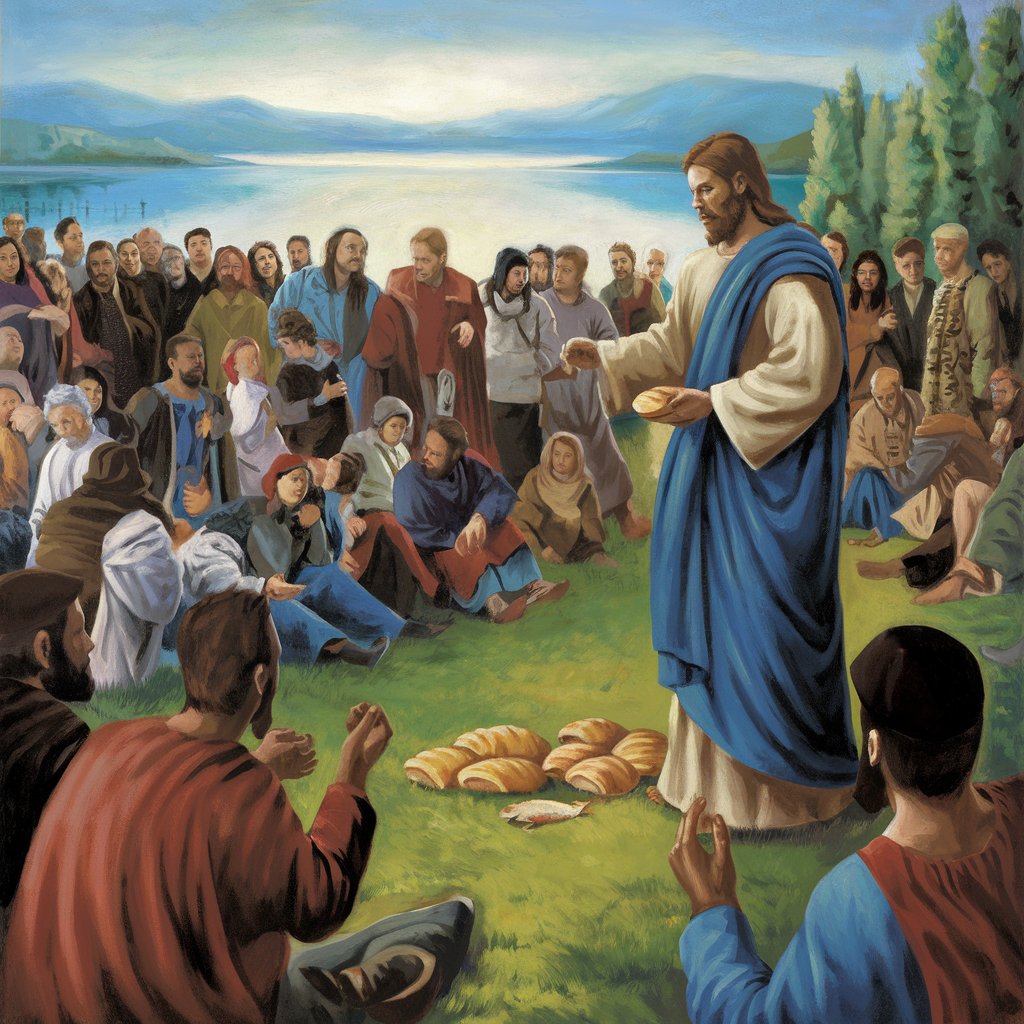
biblical meaning of food
Table of Contents
Introduction
Food is not merely a source of nourishment; in the biblical narrative, it carries profound spiritual significance. Throughout the scriptures, food serves as a medium through which God communicates His intentions, blessings, and teachings. This article delves into the biblical meaning of food, examining its spiritual significance, symbolism, and the role it plays in fostering community and spiritual growth.
Spiritual Significance of Food in the Bible
In biblical times, food was central to daily life and spiritual practices. The consumption of food was often associated with spiritual nourishment and divine provision. The Bible illustrates how food serves as a metaphor for spiritual sustenance.
The Manna from Heaven
One of the most notable examples is the manna provided to the Israelites during their exodus from Egypt. This heavenly bread symbolized God’s provision and faithfulness, teaching the people to rely on Him for their daily needs (Exodus 16:4-36). The lesson of dependence on divine sustenance remains relevant today, as believers are encouraged to seek spiritual nourishment through prayer and scripture.
Food as a Covenant Sign
Food also plays a critical role in the covenant between God and His people. The Passover meal, for instance, commemorates the Israelites’ deliverance from Egypt. The lamb’s sacrifice and the eating of unleavened bread signify both remembrance and gratitude for God’s mercy (Exodus 12:1-28). This act of eating together strengthens the community’s identity and their relationship with God, highlighting how meals are deeply intertwined with faith and tradition.
Symbolism of Food in Scripture
Food in the Bible is rich in symbolism, often representing deeper spiritual truths.
Bread and Wine
Bread and wine, in particular, hold significant symbolic value. Jesus referred to Himself as the “bread of life,” indicating that true nourishment comes from Him (John 6:35). This metaphor highlights the idea that spiritual fulfillment cannot be achieved through physical means alone; it requires a connection to the divine. Similarly, wine symbolizes joy and celebration, often associated with God’s blessings (Psalm 104:15).
Feasting and Fasting
The Bible also addresses feasting and fasting, both of which have spiritual implications. Feasting symbolizes joy, abundance, and community, while fasting reflects humility, repentance, and a desire for spiritual growth (Matthew 6:16-18). Through these practices, believers learn the importance of balance in life, recognizing that both enjoyment and discipline are essential for spiritual maturity.
Jesus and Food: Miracles and Teachings
Jesus’ ministry frequently involved food, illustrating its importance in His teachings and miracles.
The Feeding of the 5,000
One of the most well-known miracles is the feeding of the 5,000 (John 6:1-14). This event not only showcases Jesus’ compassion but also serves as a lesson in abundance and sharing. The miracle reminds believers that God can multiply what we have when we offer it to Him. This act of sharing reflects the principles of generosity and communal support, encouraging believers to look beyond their needs and consider the needs of others.
The Last Supper
During the Last Supper, Jesus instituted the Eucharist, using bread and wine to symbolize His body and blood. This act represents the new covenant and the importance of remembering His sacrifice (Luke 22:19-20). The communion meal fosters a sense of unity among believers, reminding them of their shared faith and commitment to living according to Christ’s teachings.
Food as a Symbol of Community
In many cultures, sharing a meal fosters community and strengthens relationships. The Bible reflects this notion, emphasizing the importance of communal meals.
The Early Church
The early Christians gathered to break bread together, fostering a sense of unity and belonging (Acts 2:42). These meals were not just about sustenance but also about sharing faith and encouraging one another. This practice of communal dining remains significant today, as it serves as a foundation for building strong, supportive communities within the church.
Hospitality in Scripture
Scripture encourages hospitality, where offering food to others is seen as an expression of love and kindness (Hebrews 13:2). This principle is evident in various biblical accounts, such as Abraham’s hospitality to the three visitors (Genesis 18:1-8). The act of sharing food becomes a way to extend grace and welcome to others, fostering connections and community.
Fasting, Diet, and Spiritual Growth
Fasting is a significant practice in the Bible, often linked to spiritual growth and seeking God’s guidance. The act of abstaining from food allows believers to focus on prayer and spiritual discipline.
The Purpose of Fasting
Fasting is not just about giving up food; it’s about drawing closer to God and seeking His will (Isaiah 58:6-7). Through fasting, individuals often experience a deepened spiritual awareness and connection. The Bible encourages fasting as a means to humble oneself before God, seeking clarity and strength in faith.
Dietary Laws and Spiritual Obedience
The Old Testament contains dietary laws that served to distinguish the Israelites from other nations. These laws were a form of obedience to God and reflected a holistic view of health and wellness (Leviticus 11). Adhering to these dietary restrictions reinforced the Israelites’ identity as God’s chosen people and demonstrated their commitment to living according to His commands.
Cultural Contexts of Food in the Bible
The significance of food in the Bible is also shaped by the cultural contexts in which it is presented. Different communities within the biblical narrative had unique food customs and practices that influenced their understanding of food’s role in faith.
The Role of Agriculture
Agriculture played a vital role in biblical societies, shaping their diet and cultural practices. The agrarian lifestyle is reflected in numerous parables and teachings, emphasizing the connection between physical labor and spiritual growth. For example, the parable of the sower (Matthew 13:1-23) illustrates how different soils affect the growth of seeds, symbolizing how the heart’s condition influences spiritual receptivity.
Food in the New Testament
The New Testament introduces a broader cultural perspective on food as it intersects with various traditions. Jesus’ interactions with different groups, such as the Samaritans and Gentiles, challenged existing food laws and emphasized inclusivity. The early church grappled with dietary restrictions and the significance of food in fellowship, ultimately leading to the understanding that faith transcends cultural boundaries (Acts 10:9-16).
Conclusion
The biblical meaning of food encompasses far more than mere physical sustenance. It is deeply intertwined with spiritual significance, symbolism, and community. Understanding these aspects enriches our appreciation for the role of food in our faith and daily lives, reminding us that every meal can be an opportunity for gratitude, reflection, and connection. As believers, we are called to recognize the sacredness of food and the blessings it represents in our spiritual journey.
Frequently Asked Questions
What is the significance of food in the Bible?
Food in the Bible represents God’s provision, spiritual nourishment, and communal relationships. It is often used as a symbol of God’s blessings and teachings.
How does Jesus use food in His teachings?
Jesus frequently used food in His teachings to convey spiritual truths, such as in the feeding of the 5,000 and during the Last Supper, where He instituted the Eucharist.
What role does fasting play in the Bible?
Fasting is seen as a practice for spiritual growth and seeking God’s guidance. It allows believers to focus on prayer and deepen their relationship with God.
How can food foster community according to the Bible?
Sharing meals is a biblical principle that fosters unity and community. The early Christians exemplified this by breaking bread together, emphasizing the importance of hospitality and love.
What dietary laws are mentioned in the Bible?
The Old Testament outlines dietary laws that were meant to set the Israelites apart as a holy people. These laws included clean and unclean animals and were a form of obedience to God.







